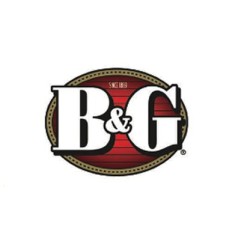Top Class Actions’s website and social media posts use affiliate links. If you make a purchase using such links, we may receive a commission, but it will not result in any additional charges to you. Please review our Affiliate Link Disclosure for more information.

Plaintiff Robin Z. says she used to work for B&G as Supervisor of Co-Manufacturing.
That position placed her in charge of the production and packaging of certain B&G products under the direct supervision of defendant John K.
According to her employee retaliation lawsuit, Robin claims that in Sept. 2015, John directed her to authorize production of a B&G popcorn-based product known as “Pirate’s Booty” under a new recipe without any attendant change in labeling to reflect the new ingredients, and without referring the recipe change to B&G’s regulatory department for approval.
Robin says she reasonably believed that changing the Pirate’s Booty recipe without updating the label would violate the federal Food, Drug and Cosmetic Act and Nutrition Labeling and Education Act, as well as New Jersey consumer protection laws.
On those grounds, Robin says, she objected to John’s order. John nevertheless declined to rescind it.
Employee Retaliation Lawsuit Claims Objections Were Well-Grounded
She says she consulted the company’s regulatory affairs manager, who told her that the new recipe was indeed a new master formula that would require regulatory department approval and a new label.
Robin says the manager told her that the altered product would have been subject to recall if it had gone into production as John had ordered.
She says she then reported the issue to John’s immediate supervisor, then circulated an email to all concerned persons calling for a correction to John’s allegedly erroneous order.
Later, in November 2015, Robin also reported to John that the 4-ounce bag of Pirate’s Booty failed to indicate that the product contained vitamin D, possibly violating federal law and potentially putting some consumers at risk for an allergic reaction.
John took no action in response to her report, she claims.
In her employee retaliation lawsuit, Robin says the trouble surfaced when John gave her a written performance evaluation in December 2015.
After Robin had allegedly met or exceeded performance requirements from 2008 through 2014, she claims, John alleged her job performance was poor and that her supervisor title was in jeopardy.
That review resulted in a lower annual salary increase for Robin – 1.5 percent, as opposed to the 3.5 to 4 percent she had received in previous years, she claims.
Robin claims John gave her the negative performance evaluation and smaller pay increase as retaliation for her prior contravention of his orders. She says this and other conduct created an untenable work environment that effectively drove her out of her job.
In January 2016, she says, she resigned her position – but not before the alleged retaliatory action had caused her “severe emotional distress, and compensatory and consequential damages, including the loss and forfeiture of her pension.”
Her employee retaliation lawsuit raises a single claim for violation of New Jersey’s Conscientious Employee Protection Act, also known as CEPA or the Whistleblower Act.
She seeks a damage award that would cover her lost wages, benefits, pension and other remuneration, as well as compensation for her emotional distress. She also seeks an award of punitive damages and reimbursement of her attorneys’ fees and court costs.
The B&G Employer Retaliation Lawsuit is Case No. L-1806-16, in the Superior Court of New Jersey, County of Morris.
In general, whistleblower and qui tam lawsuits are filed individually by each plaintiff and are not class actions. Whistleblowers can only join this investigation if they are reporting fraud against the government, meaning that the government must be the victim, and that the alleged fraud should be a substantial loss of money.
Do YOU have a legal claim? Fill out the form on this page now for a free, immediate, and confidential case evaluation. The attorneys who work with Top Class Actions will contact you if you qualify to let you know if an individual qui tam lawsuit or whistleblower class action lawsuit is best for you. Hurry — statutes of limitations may apply.
ATTORNEY ADVERTISING
Top Class Actions is a Proud Member of the American Bar Association
LEGAL INFORMATION IS NOT LEGAL ADVICE
Top Class Actions Legal Statement
©2008 – 2024 Top Class Actions® LLC
Various Trademarks held by their respective owners
This website is not intended for viewing or usage by European Union citizens.
Get Help – It’s Free
Join a Free Whistleblower, Qui Tam Lawsuit Investigation
If you believe that you have witnessed fraud committed against the government, you may have a legal claim. Whistleblowers can only join this investigation if they are reporting fraud against the government, meaning that the government must be the victim, and that the alleged fraud should be a substantial loss of money.
See if you qualify to pursue compensation and join a whistleblower lawsuit investigation by submitting your information for a free case evaluation.
An attorney will contact you if you qualify to discuss the details of your potential case.
Please Note: If you want to participate in this investigation, it is imperative that you reply to the law firm if they call or email you. Failing to do so may result in you not getting signed up as a client, if you qualify, or getting you dropped as a client.
Oops! We could not locate your form.












